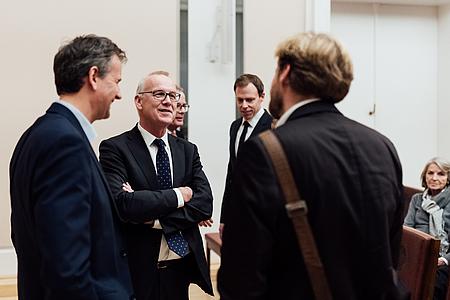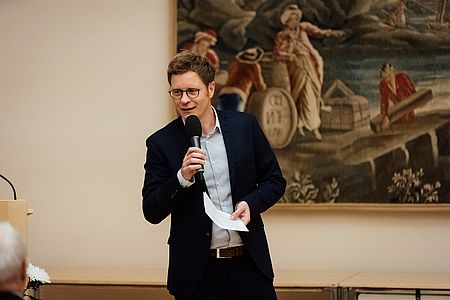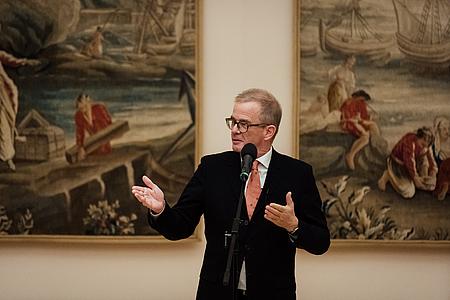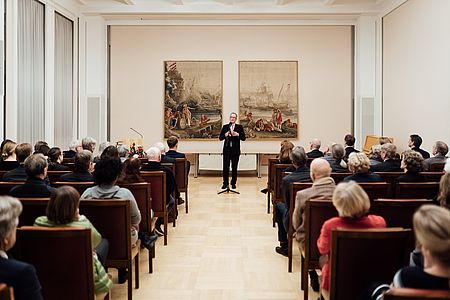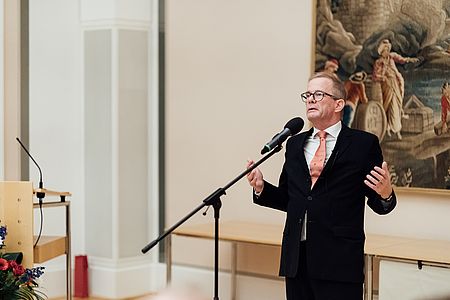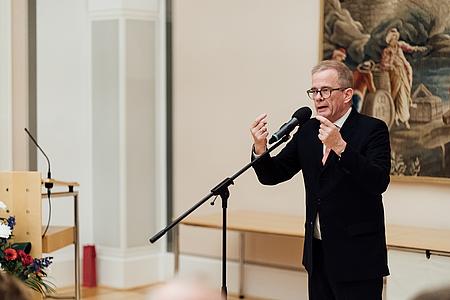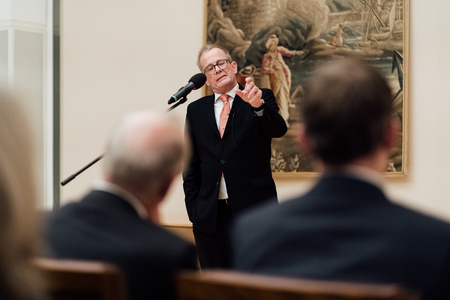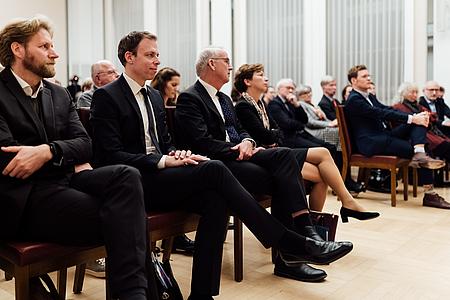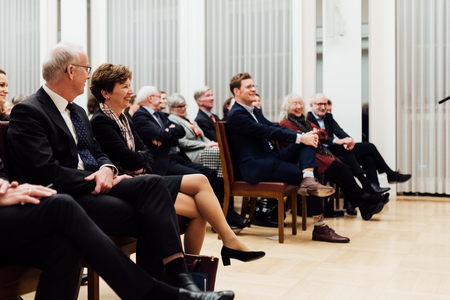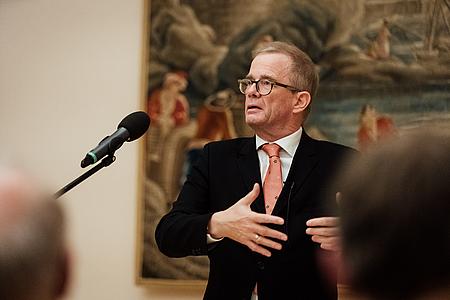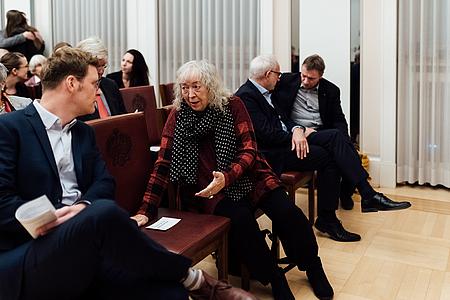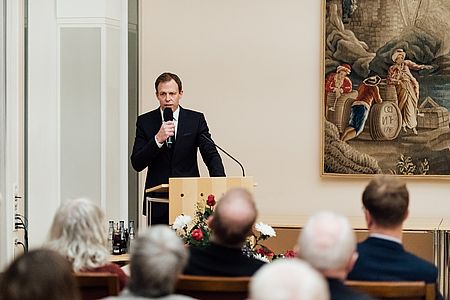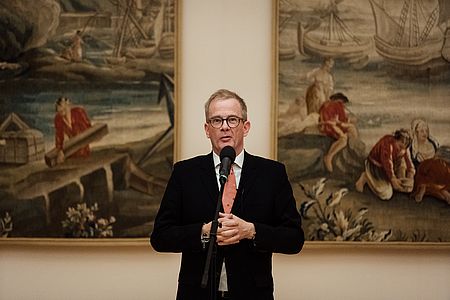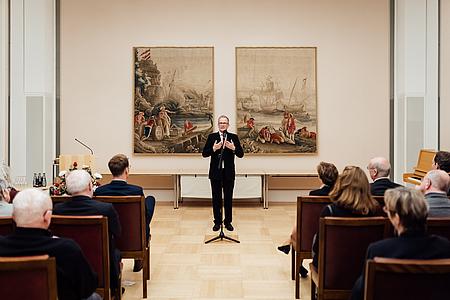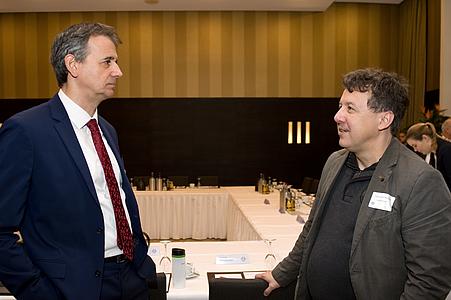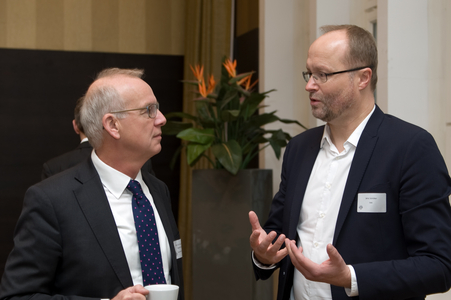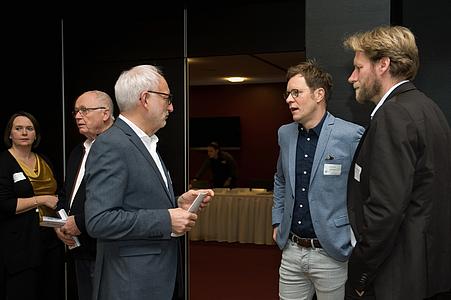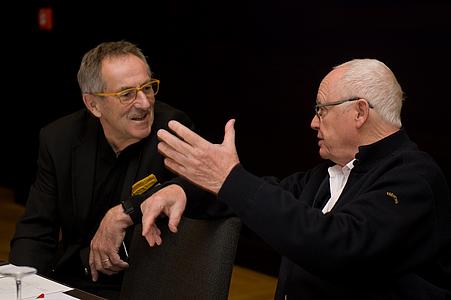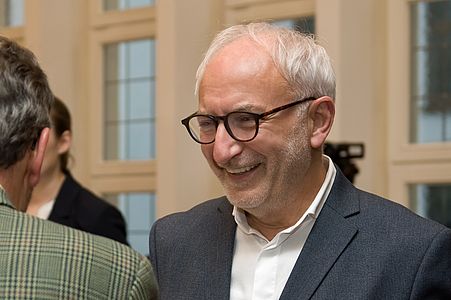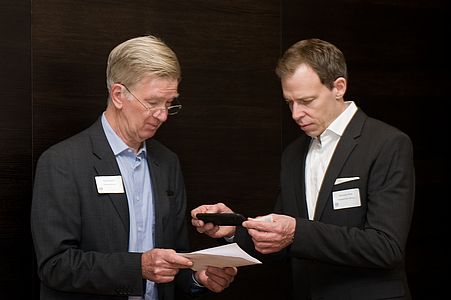BUG 2019
The topic
The demographic development is often described as a horror scenario based on gloomy forecasts: There is talk of ageing, a war between the generations and the collapse of welfare state systems. This can be read in Frank Schirrmacher's "The Methuselah Plot". However, the huge social change processes that are actually expected and their consequences can also mean new opportunities to shape our lives: Age as a social resource. For example, data from Infratest's volunteer survey shows that more and more older people are discovering the importance of civic resources and are beginning to get involved in shaping our society.
One thing is certain: age and ageing are key cultural, social, health and socio-political challenges of our time and for the future. Ten unstoppable "megatrends" are regarded as indisputable by a large majority of the experts surveyed. These include increasing globalisation, the closer networking of communication media and the ageing of society.
In the coming decades, the age structure of society will change enormously: by 2060, one in three people will be at least 65 years old - and one in seven will be 80 or older. Considering the high life expectancy and the good state of health of many senior citizens, it is not surprising that 67 per cent of 65 to 74-year-olds no longer describe themselves as "old people" according to the Generali Ageing Study (2012). We will have to come to terms with a completely different image of old age.
The changes will affect almost all areas of life in a variety of ways and manifest themselves in different phenomena: the increase in life expectancy, a changing relationship between the generations and the development of other social lifestyles. Central areas of life such as consumption, technology, transport and housing will also change. Above all, however, it is the health opportunities and risks that are associated with an ageing society: On the one hand, this is linked to the exponential and seemingly almost uncontrollable rise in chronic illnesses, the need for care and dementia. The reasons for this include the healthcare system's continued strong focus on the treatment of acute illnesses and the glaring shortage of skilled labour. It is questionable whether the 500,000 nursing staff that will be missing in a few years can be compensated for by migration alone. On the other hand, and precisely for this reason, there is enormous potential for productive growth in the development of medical, nursing and health science research. As early as 2050, it may be possible to provide care using robotics and intelligent sensors as well as the potential unleashed by the digitalisation of the world of work and medical care via digital media and to actively control our own ageing process. Defective genes are repaired more quickly, thereby prolonging the life of cells. Deficits as sources of progress, arising from the need to compensate for human biological disadvantages.
All of this results in enormous challenges for society and politics, but also for the individual, which raise a number of questions. This is where the Bremen University Talks 2019 should start: Knowledge is to be exchanged across disciplines and beyond entrenched structures. The aim is to broaden horizons of thought in order to develop long-term and bold visions for the future.
Download
[Translate to English:] Programmheft BUG 2019
File name: 154945_programmheft_2019-2.pdfLast update: 13.08.2019
Ageing society - future scenarios between opportunities and risks
Click here for the instructional videos
Datum | Thema | Dozent |
| 15/11/2019 | Medizinische Optionen & Traum vom ewigen Leben | Prof. Dr. Dr. Konrad Beyreuther |
| 15/11/2019 | Wie werden (wollen) wir in Zukunft altern? | Dr. Marc Bovenschulte |
| 15/11/2019 | Reformbedarfe und Reformoptionen in der Pflegeversicherung | Prof. Dr. Heinz Rothgang |
| 21/11/2019 | Wie wir morgen leben und arbeiten werden | Dr. Eike Wenzel |
| 15/11/2019 | Zukunft der Pflege in Zeiten des demografischen Wandels | MD Prof. Dr. Matthias von Schwanenflügel |
| 16/12/2019 | Ethik und Kultur einer alternden Gesellschaft - Kurzfassung | Prof. Dr. Dr. hc. Julian Nida-Rümelin |
| 17/12/2019 | Festvortrag BUG 2019 | Prof. Dr. phil. Dr. h.c. Dipl. Psych. Andreas Kruse |
| 15/12/2019 | Technische Optionen - Traum vom ewigen Leben | Prof. Dr.-Ing. Andreas Hein |

